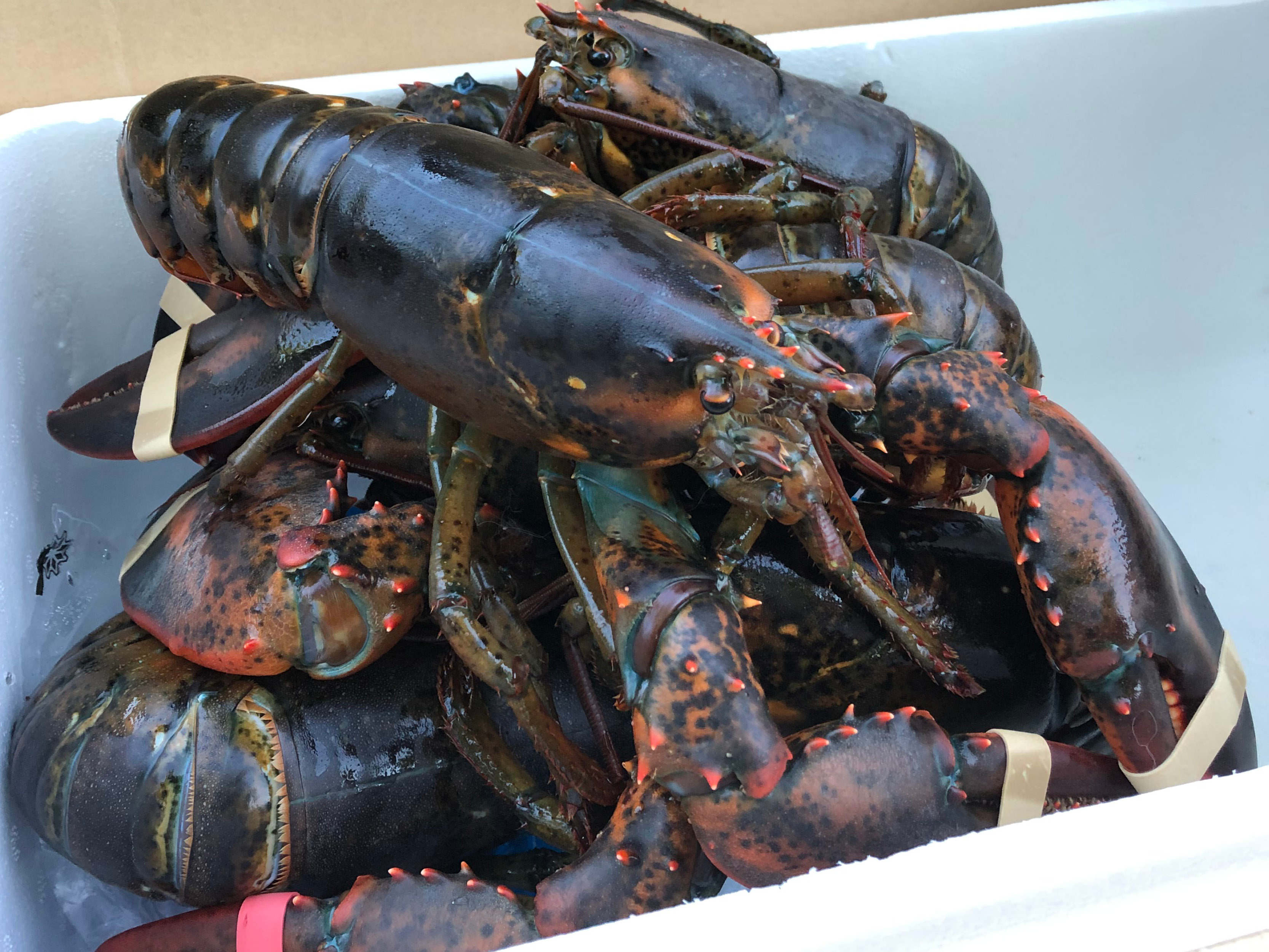With a two-year reprieve, the Northeast lobster fishery has some new maneuvering room for how it can coexist with mounting demands to limit trap gear and protect endangered North Atlantic right whales.
Maine Gov. Janet Mills and the state’s congressional delegation expressed some measured relief in a joint statement Sunday, reacting to the latest opinion from U.S. District Court Judge James Boasberg in Washington, D.C.
Boasberg’s Nov. 18 ruling in the long-running litigation gives the National Oceanic and Atmospheric Administration until December 2024 to finalize gear restrictions that fishermen say would cripple the industry.
A "two-year-delay is better than no delay," according to Mills, Sens. Susan Collins and Angus King and Reps. Jarded Golden and Chellie Pingree in a joint statement issued Sunday.
But they said Boasberg’s ruling "fails to address the underlying issue: NOAA's regulations have created a crisis that threatens the livelihood of thousands of hardworking Mainers without meaningfully protecting right whales."
“There has never been a right whale death attributed to Maine lobster gear, yet NOAA has continually refused to follow the science, and has relentlessly targeted our lobster industry,” they said. “NOAA must use this pause to carefully review the data and propose an updated rule that reflects the reality in the Gulf of Maine.”
In sorting competing demands from environmental groups and fishermen, Judge Boasberg in his opinion wrote that all must work together for the collective survival of right whales and fishing communities.
“The Court’s goal in this process remains to allow all stakeholders — conservationists, scientists, lobstermen, and others — to work collaboratively to ensure the survival of both the right whale and the lobster industry,” wrote Boasberg. “While the Court is duty bound to ensure compliance with the law — here, the Endangered Species Act and the Marine Mammal Protection Act — it does not wish to usurp the role of the experts, especially given how quickly circumstances change.”
Boasberg acknowledged the scene is rapidly shifting for NOAA and the fishing industry. There is more information emerging about the whales’ survival situation, and NOAA’s goal of developing new lobster fishing gear that might eliminate vertical lines between trap lines and buoys.
“The Court appreciates that the agency has a steep climb ahead: in addition to helping the industry onto a path towards widespread adoption of ropeless technology, it must carefully weigh the scientific data in an ever-evolving field,” Boasberg wrote. “It is not for the Court to propose policy solutions; its role is only to ensure compliance with the law while, in its equitable discretion, offering all sides some breathing room to work in good faith towards a solution. The Court believes that this Order is the best of the difficult options available for doing so.”
NOAA and lobster fishermen are still far apart on what gear and area restriction measures are feasible. The Maine Lobstermen’s Association is promising to push its legal appeal all the way to the U.S. Supreme Court.
“We appreciate that the judge recognizes the need to avoid massive disruption of the fishery, but the simple truth is lobstermen are still mandated to achieve a 90 percent risk reduction in two years, which cannot happen without causing significant harm to the fishery,” said Patrice McCarron, the MLA executive director, in a statement after the judge’s opinion.
"This is why the MLA's lawsuit against NMFS is so critical. We must continue our fight through the appeals court to force NMFS to reconsider its worst-case assumptions so that the risk-reduction goal will be recalculated to more closely reflect the risk posed by our fishery.”
The Maine Lobstering Union said Boasberg “agreed with the union and its colleagues that all concerned need to better understand the available data before making decisions that could drastically alter or even end lobster fishing in federal waters.”
The judge’s opinion “has given the industry and NMFS the time that they need to evaluate the science and come up with a workable solution that will allow both the lobster fishery and the right whale to thrive,” the union said. “While change is coming, and there is much work left to be done, this is a significant step towards finally finding that solution.”







